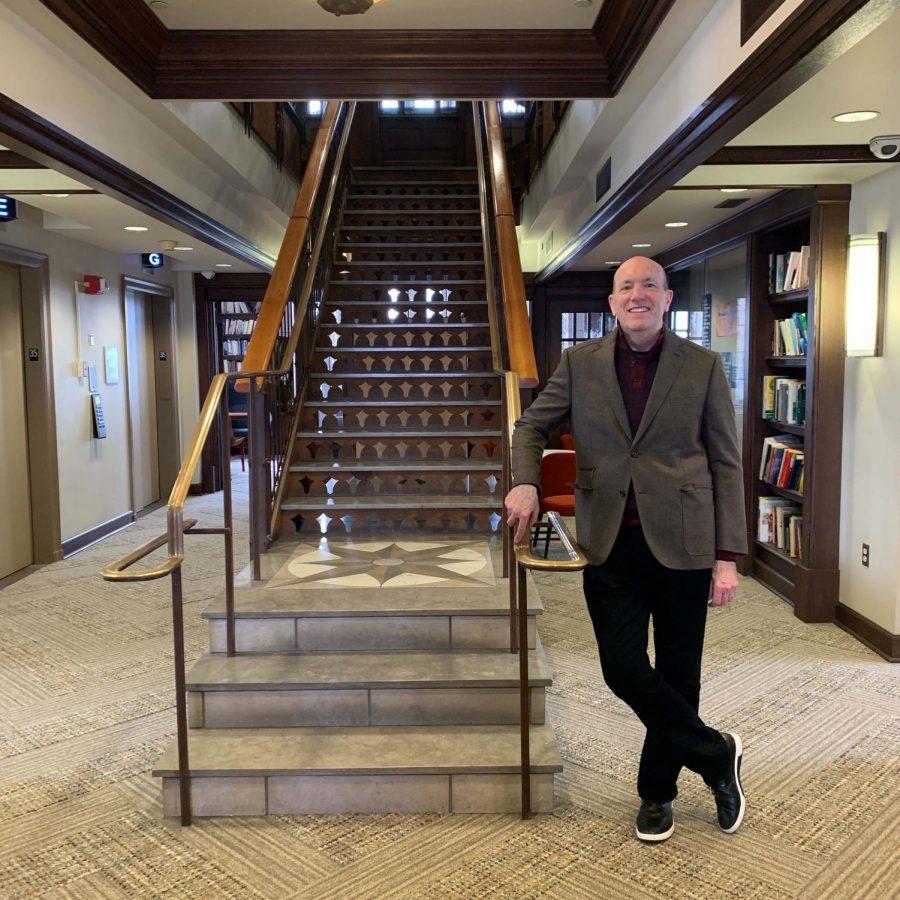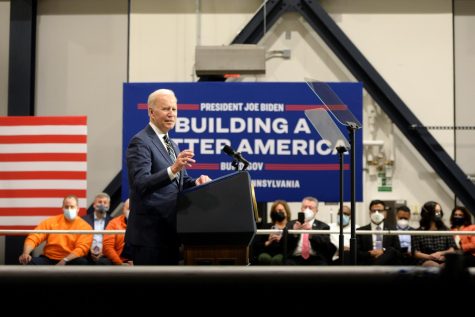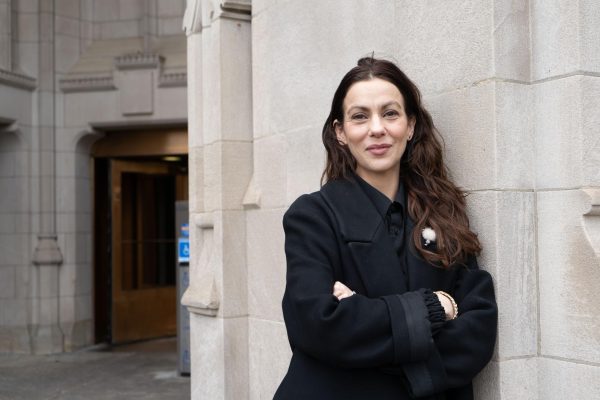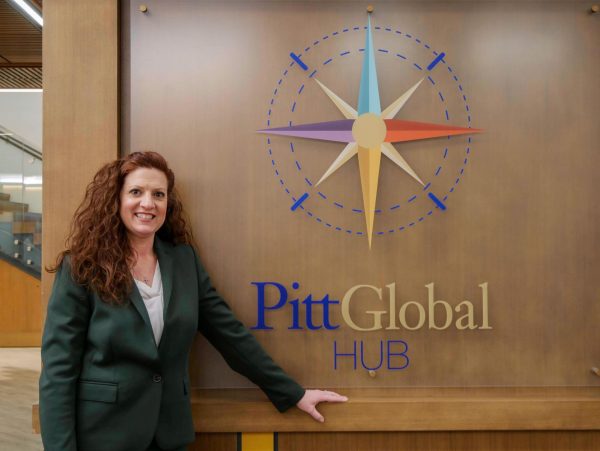Taking the Ted stage to Cathy: Pitt alum finds success in resilience
Grace Giglio | For the Pitt News
John Daniel, a West End native and 1979 Dietrich School of Arts and Sciences alumni, spoke Sunday in the Cathedral about how students can rewrite their definition of success.
February 10, 2020
Pitt alum John Daniel laid down in 2015 to receive a heart transplant which would extend his life for a minimum of 10 years. He stood four years later to give a TED Talk on the power and experience of intentional thought.
“I had this picture in my head,” Daniel said in the TED Talk. “I saw myself on a bicycle all dressed with my helmet, doing a long bike ride in some exotic location. That got me through all the pain. The discomfort. Just having that vision in my head … And so, the thing is, when you face something that seems daunting and overwhelming, you’ve got to have a picture of you on the other end.”
Daniel’s TED Talk, “Everything Will Be Alright,” offered viewers a glimpse into his rise from poverty, the loss of his wife and the experience of undergoing a heart transplant. The Pittsburgh native and 1979 Dietrich School of Arts and Sciences graduate came to the 35th floor of Pitt’s Cathedral of Learning Sunday morning to talk to students about his perspective on success and cultivating a positive mindset.
Raymond Davis, the charitable relationship manager of the Division of Philanthropic and Alumni Engagement, suggested that he appear as a speaker at the Honors College after watching Daniel’s TED Talk and getting to know him.
“I thought he was just a fantastic example of someone who took their education and ran with it. He looked for opportunities and worked hard,” Davis said.
At the event, Daniel focused on the four basic factors to which he credits personal and professional success — self-awareness, perspective, adaptability and resilience. Careful attention to these processes, he said, is what has led him to success and ultimately maintains his positive outlook.
Growing up, Daniel learned from his mother how to balance the chaotic and dynamic lifestyle that they shared. He moved 10 separate times as a child, he said, coupled with frequent trips to and from hospitals to combat health issues.
“I came out of that with some sense of the ability to be in control of my circumstances,” Daniel said.
Working as the executive vice president and chief human resources officer for First Horizon National Corporation, Daniel said he finds pride in teaching employees the ways in which they can gain control over their own circumstances.
According to Daniel, heightened self-awareness is an effective tool in developing rational thought and emotional intelligence. In the workplace, he said he frequently uses feedback as a strategy to raise employees’ self-awareness.
“This idea of intrapersonal awareness, which I call self-awareness, is really important,” Daniel said. “[It] is your ability to understand your moods and behaviors and their impact on others. Reflection is key in developing the skill of self-awareness.”
In Daniel’s experience, the largest obstacle in gaining self-awareness and perspective is a negative mindset.
“The brain has a negative bias. So when something happens, the first question is why,” Daniel said. “Growing up, I wasn’t automatically fighting the system, I was trying to understand the system.”
Maintaining productive habits and seeking perspective now comes as second nature to Daniel, but only in retrospect. Productivity and positivity are attributes he believes are built with consistent and applied practice and must be practiced through the best and worst of times.
Fluctuations in social environments produce variations in human behavior that are reflective of the human ability to adapt to the unknown. The ability to adapt, he said, corresponds with resilience — which he defines as the capacity to rebound from trauma.
“Resilience, in some ways, is a product of our personality,” Daniel said. “It is not a trait like agreeableness and consciousness. It is a mental process that you can teach. The most important thing is to face an obstacle and to reflect on the inner voice in your head. You can rewire your brain through intentional thought.”
Cassidy Dinsmore, a first-year student intending to major in human resources, attended the event to hear from a seasoned professional in the fields of HR and business. She found what John had to say to be a good complement to her intended course of study at Pitt.
“It was an interesting validation of what I am learning here will be useful towards what I am doing in the future,” Dinsmore said. “Within business, HR is sometimes seen as lesser. So, it’s very interesting to hear from someone who has been so successful in HR and in the business field.”
Daniel defines his success in measures of emotion. He said he is happy with family and friends, proud to be an active member of his community and excited to go to work everyday and share his expertise with others.
“I still have setbacks!” Daniel said. “You have to accept the fact that it may take an hour, a day, a week or longer to build a growth mindset. It is important to think you can constantly grow and learn.”








